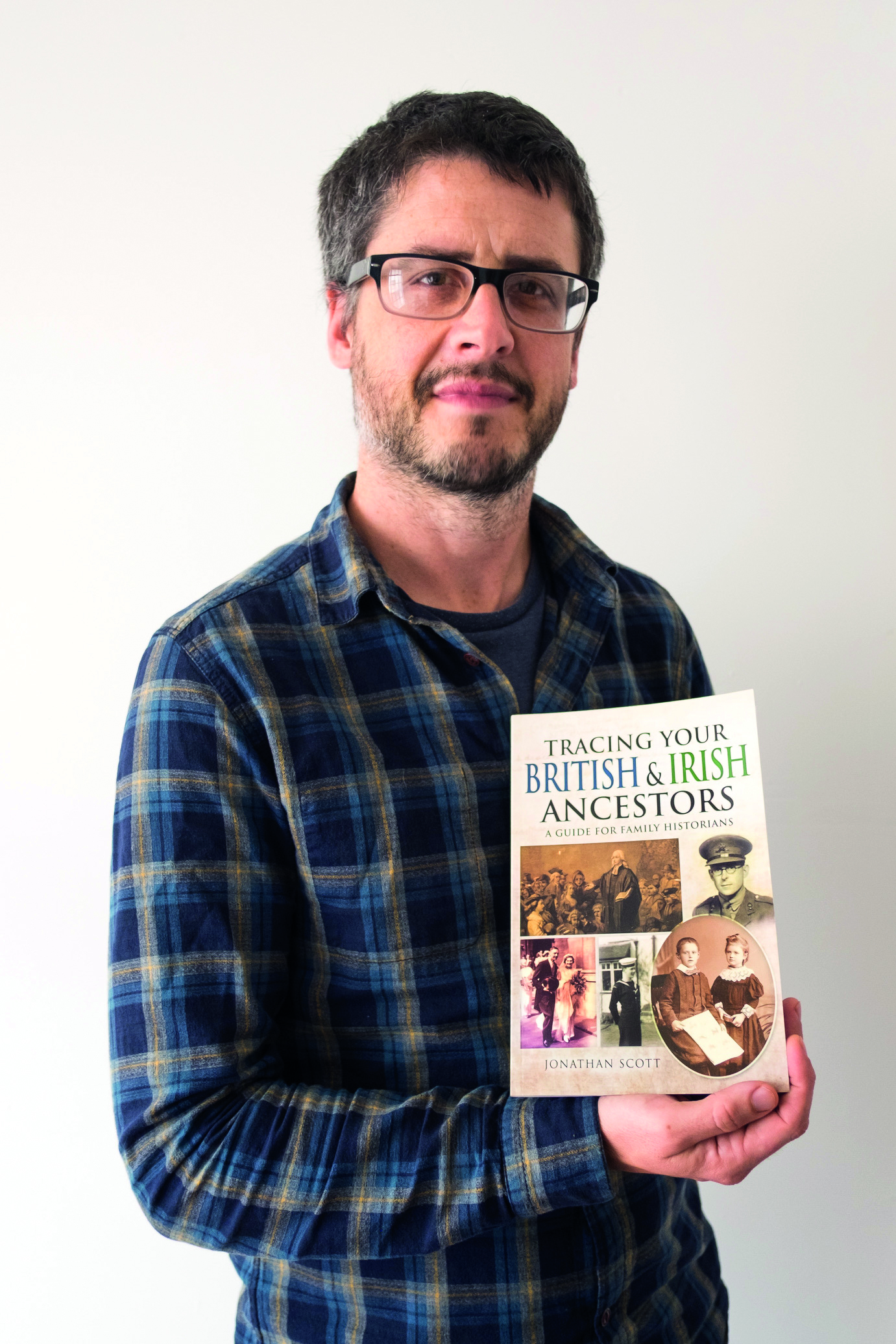Low-cost DNA tests have changed the landscape for genealogists. Now anyone with an interest in their family history can add DNA to their arsenal of research tools.
There's a lot of hype about the possibilities of DNA family history, but for beginners, it can be hard to know where to start. What are the different types of DNA test? What do DNA test results mean? Can they help you find distant relatives, or understand your heritage?
These websites provide a good starting point for understanding more about DNA family history.
The best websites for DNA family history research
1. AncestryDNA
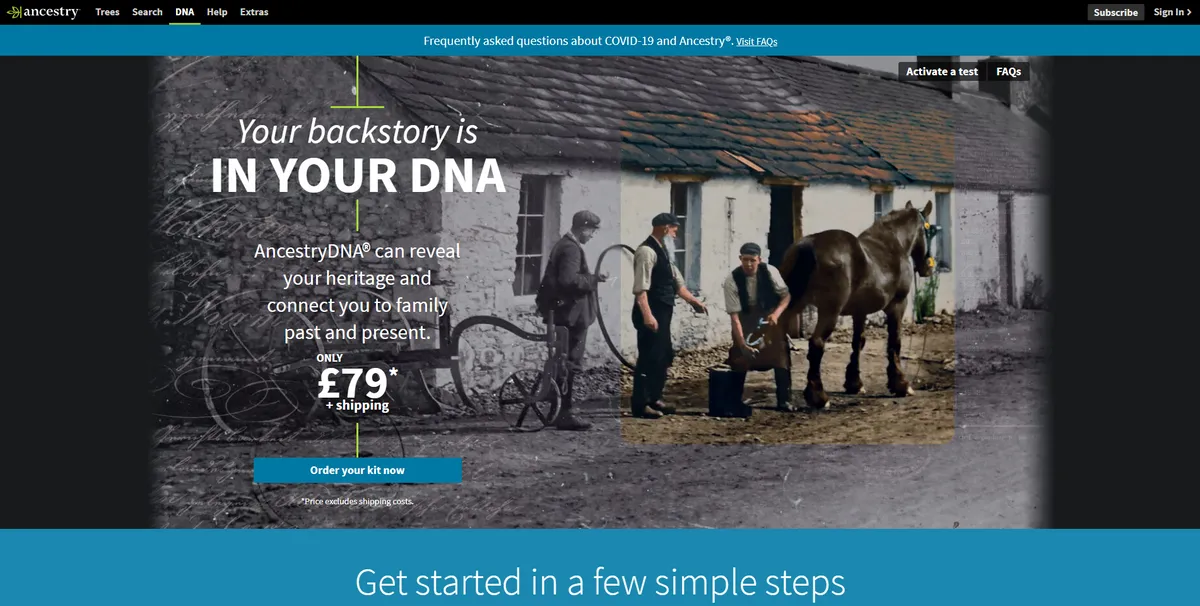
This is the market leader in terms of autosomal DNA testing. And if you do decide to join the fray, your own genetic fingerprint will be added to what is now the world’s largest family history DNA database. In terms of usability and understanding the results, Ancestry’s offering has been designed with genealogists in mind, with an interface that allows easy integration with your tree, plus new features being unveiled all the time.
2. Cruwys News
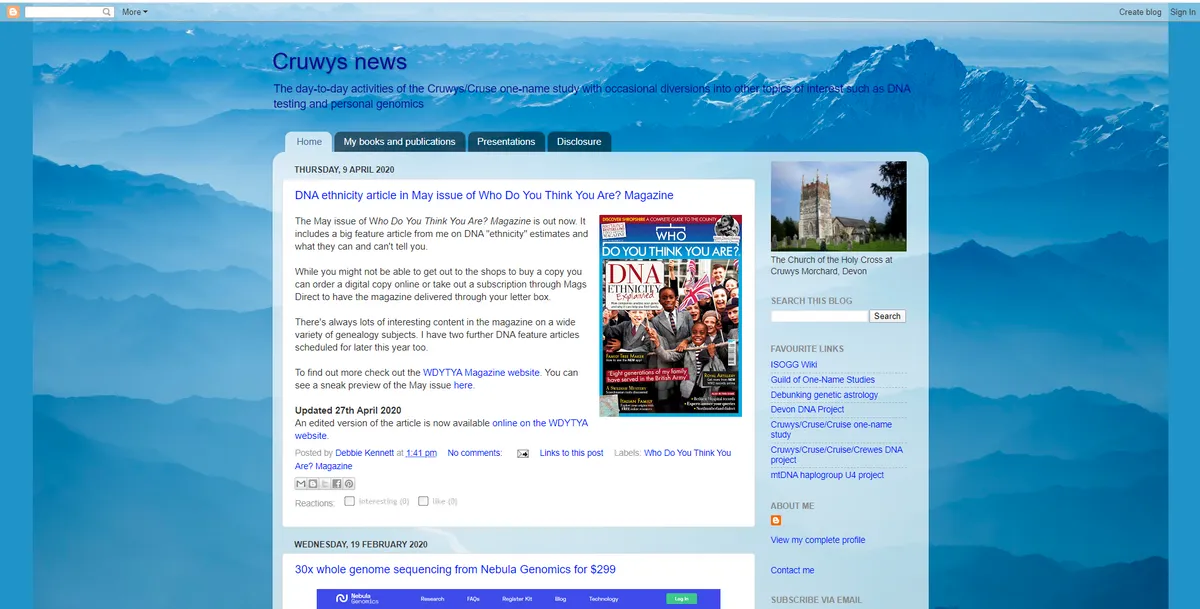
At first glance a blog about the Cruwys/Cruse one-name study, this is where author, blogger and genetic genealogy expert Debbie Kennett surveys, tests, fact-checks, challenges and explores the fast-changing landscape of DNA family history. An honorary research associate at University College London, Debbie is also a regular contributor to Who Do You Think You Are? Magazine.
3. DNA Painter
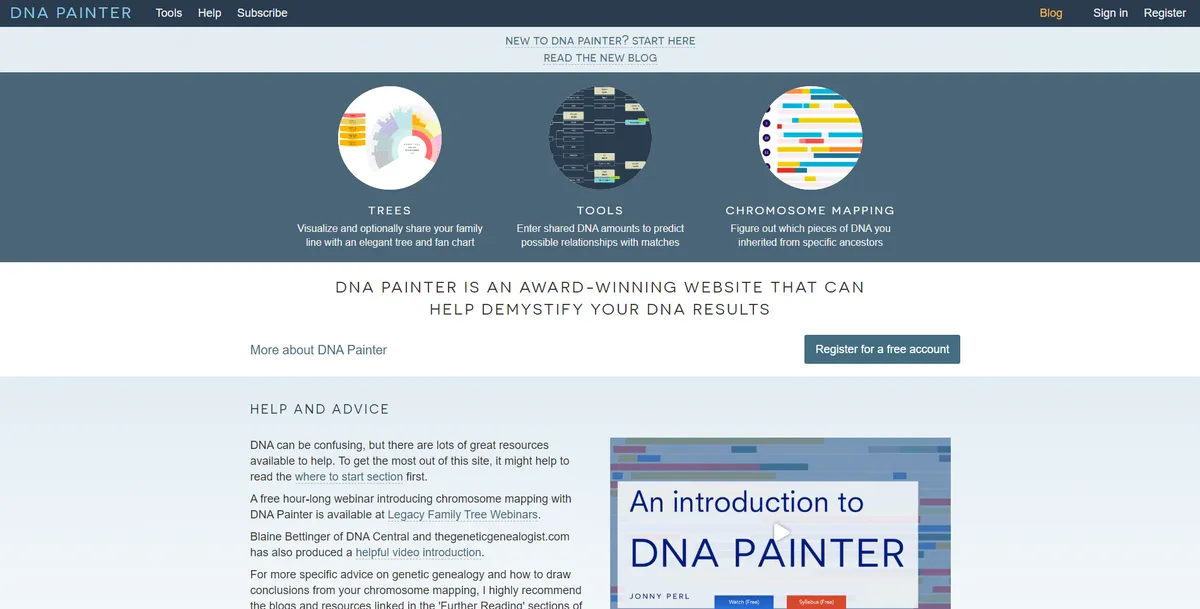
This is one of several third-party tools that can help you dig deeper into your DNA family history. It’s essentially a simple visual aid to help you to interpret autosomal DNA results – specifically which ancestors gave you different segments of your DNA. That may sound mystifying at first, so it’s certainly a place where a friendly guide is required. There’s a short ‘webinar’ on the subject and you can watch genealogist Blaine Bettinger discuss the tool. I’d also recommend exploring the case studies and FAQ pages before you try it out.
4. Guild of One-Name Studies
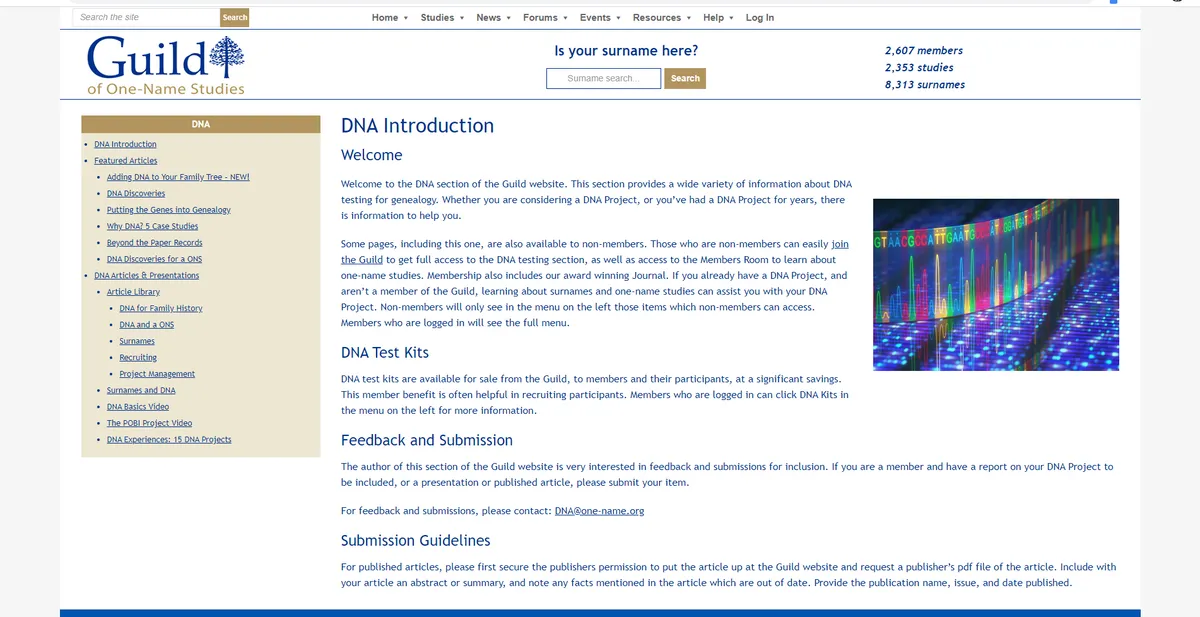
DNA family history and one-name studies are natural bedfellows, and the Guild’s introduction to this subject provides all sorts of free articles, links and members-only benefits. These include useful tips aimed at beginners in DNA family history, alongside advice and information for more seasoned researchers. Guild members can purchase DNA test kits at reduced prices, which could be worth considering if you’re planning the full-range of tests. The ‘DNA for Family History’ link leads to seven standalone PDF articles, while the ‘DNA Experiences’ link leads to case studies and articles relating to specific surname DNA family history projects, where members share their goals, approaches and discoveries.
5. FamilyTreeDNA
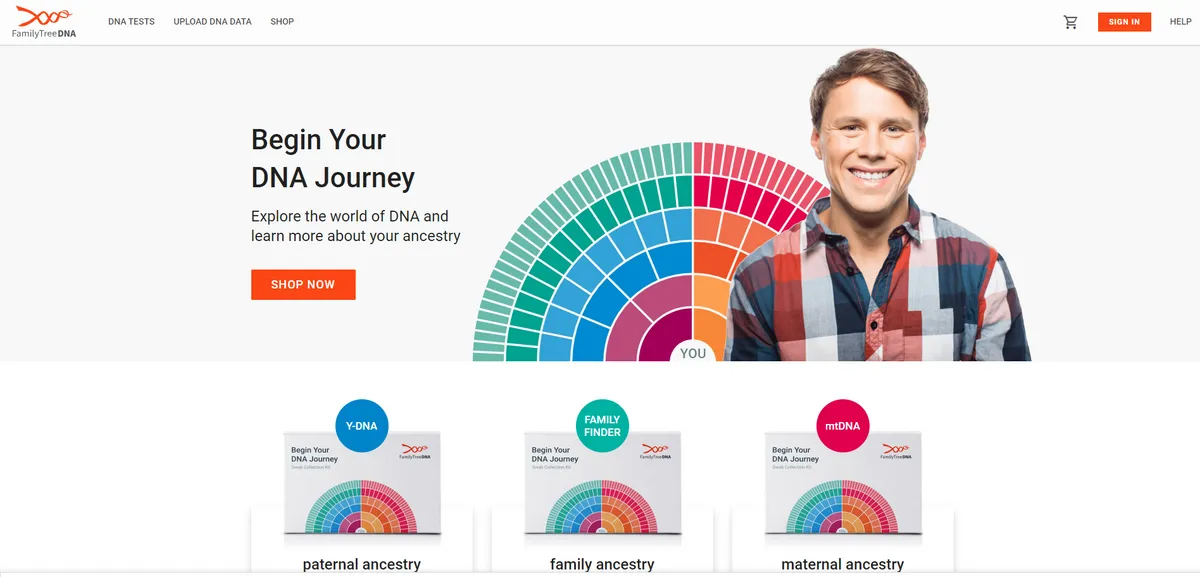
FamilyTreeDNA was founded nearly 20 years ago, and while Ancestry is king of autosomal testing, FamilyTreeDNA remains the market leader for both Y-chromosome DNA and mitochondrial DNA testing, offering the largest Y-DNA and mtDNA genealogical-matching databases for DNA family history. The website and results can appear outdated compared with its competitors, and the pricing system is a little confusing, but the company can boast volunteer-run surname, haplogroup and geographical projects. This collaborative approach, coupled with a test that can identify whether a relative is from your mother’s or father’s side, provides the service with its unique selling point.
6. Expert's choice: ISOGG
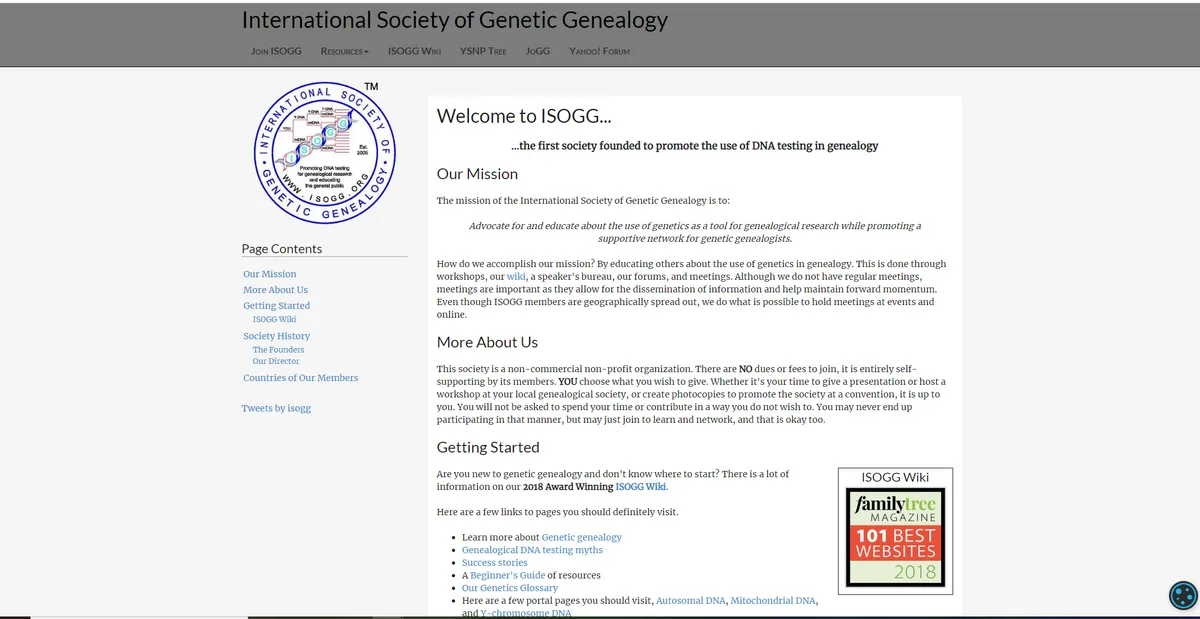
Chosen by Graham S Holton, editor of Tracing Your Ancestors Using DNA (2019):
"The International Society of Genetic Genealogy (ISOGG) is a non-profit organisation that is free to join and provides the main online resource for those interested in the study of DNA family history.
"An important section of the website is the ISOGG Wiki, which is described as 'a free genetic genealogy encyclopedia'. This includes a wide range of articles contributed by experts.
"If you have a specific question on DNA family history or a topic you want to investigate further, this should be your first port of call. Here you will find not only authoritative information, but also many references to articles for further details. These range from user-friendly blog posts, to academic articles by geneticists. There is also a glossary explaining the many technical terms found in this field.
"Another useful section contains charts comparing the different tests (autosomal DNA, mitochondrial DNA and Y-DNA) offered by the testing companies, with specifications and prices, although since this is such a fast-developing field, it is important to check the companies’ websites for any new developments.
"Finally, for those interested in in-depth analysis using SNPs (single-nucleotide polymorphisms – the most common type of genetic variation among people), I should highlight the SNP indexes – the BY SNP index (SNPs named by FamilyTreeDNA), FT SNP index (Big Y-700 SNPs named by FamilyTreeDNA) and FGC SNP index (SNPs named by Full Genomes Corporation). These give the name, position on the Y-chromosome and the mutation of each SNP listed. "
More websites for DNA family history research
7. DNA Lectures
This YouTube channel has 53 lectures on DNA family history recorded at the much-missed Who Do You Think You Are? Live shows.
8. FamilySearch
This brief overview of DNA family history has guides to the market-leading firms, plus an FAQs section.
9. Genetic Astrology
This fascinating article by an anthropological geneticist summarises some of the fantastical claims made in the DNA family history market.
10. Genetic Genealogist
Genetic Genealogist Blaine Bettinger dissects trends and tools in DNA family history.
